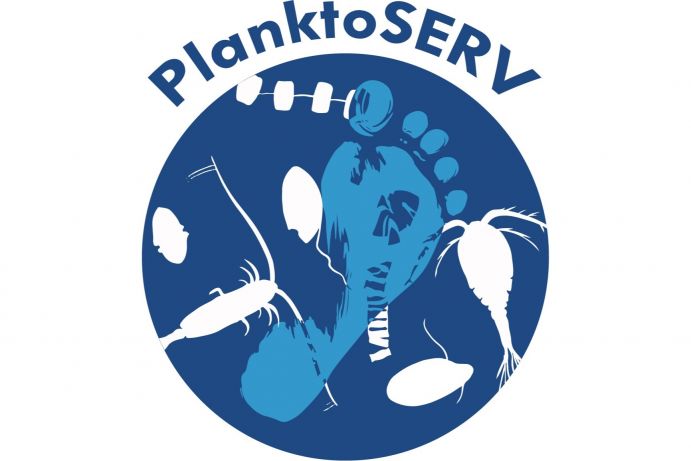PlanktoSERV - Global change vulnerability of North Sea plankton and associated ecosystem services
Human activities and associated increasing greenhouse gas emissions have caused simultaneous changes in a range of ocean abiotic parameters.
The Intergovernmental Panel on Climate Change (IPCC) has computed different scenarios projecting that, by 2100, temperatures will increase by 0.6–2.0 °C and pH will decrease by 0.1–0.4 units in the oceans' upper hundred meters. Further, increasing frequency and intensity of rainfall and river runoffs is expected to decrease coastal waters salinity. In addition, urban, agricultural, and industrial development will also continue to alter biogeochemical cycles through nutrient runoffs. Marine organisms are consequently exposed to the concurrent effects of multiple anthropogenic stressors. Since roughly 50 % of the world's population lives in coastal areas and heavily relies on ecosystem services provided by marine organisms, the impact of GC on coastal pelagic communities may drastically alter socio-economic activities.
Given the magnitude of this threat, a number of mitigation strategies have appeared over the past two decades. However, those efforts rely on incomplete scientific knowledge since most studies to date have focused on single stressors.
Project Objectives
Given their central role in marine food webs, planktonic organisms are of vital importance for healthy ecosystems. They are key indicators of ecosystem change and are therefore the core groups studied in PlanktoSERV. The project PlanktoSERV will realistically assess the impact of simultaneous changes in temperature, pH, nutrients, and salinity on different organisational levels (individual, population, and community) by conducting indoor microcosm and field mesocosm experiments with North Sea plankton. These experiments will provide a robust understanding of future ecosystem services alterations. The scientific findings will be used to conduct an impact assessment which will be integrated in reports addressed to decision makers in order to optimize mitigation strategies.
Project Management
Dr. Cédric Meunier
Alfred Wegener Institute (AWI)
Helmholtz Centre for Polar and Marine Research
Division for Biosciences - Shelf Sea System Ecology
P.O. Box 180
27483 Helgoland/Germany
Tel. +49 4725 819 3361
E-Mail: cedric.meunier@awi.de
Last updated on




